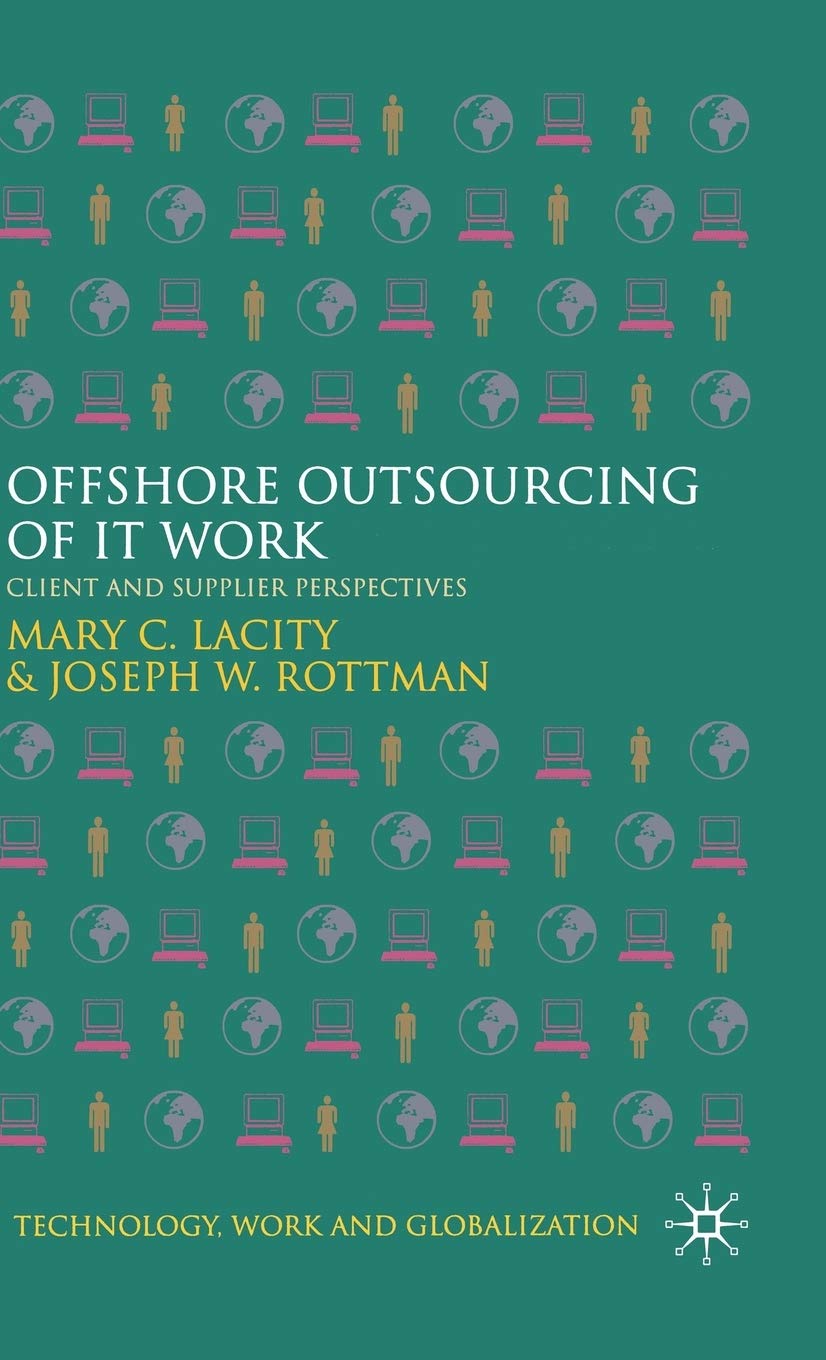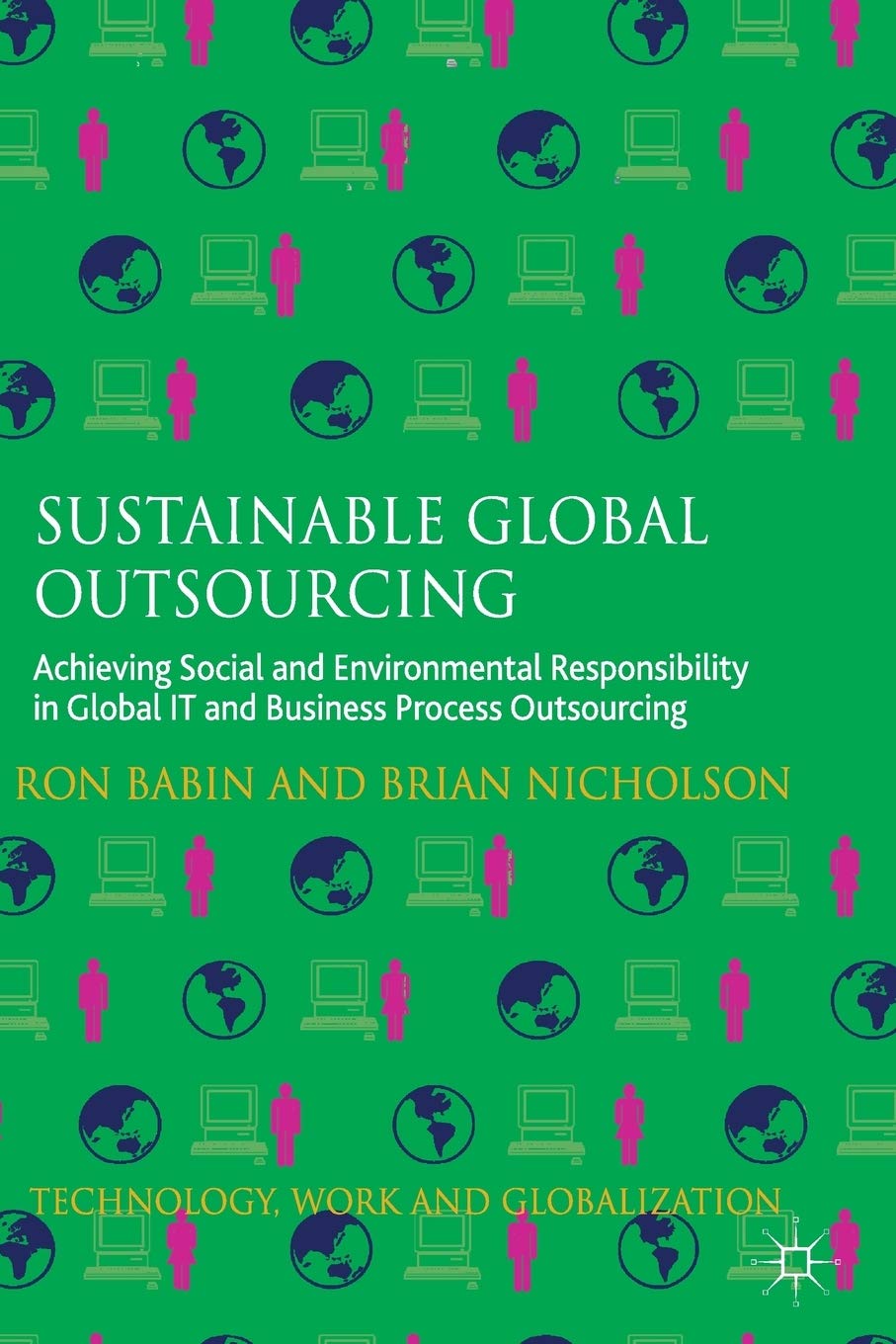Your cart is currently empty!
Tag: Globalization

The Impact of Globalization on IT Outsourcing
Globalization has had a profound impact on various industries, and one of the most affected sectors is information technology (IT) outsourcing. IT outsourcing involves companies hiring external service providers to handle their IT functions, such as software development, maintenance, and support. This practice has become increasingly popular due to the benefits it offers, including cost savings, access to specialized skills, and increased flexibility.One of the key ways in which globalization has impacted IT outsourcing is by enabling companies to access a global talent pool. With advancements in technology and communication, companies can now easily collaborate with IT professionals from around the world. This has led to a rise in offshoring, where companies outsource their IT functions to countries with lower labor costs, such as India, China, and the Philippines. By tapping into these markets, companies can reduce their operational costs and gain access to a larger pool of skilled IT professionals.
Globalization has also led to the standardization of IT processes and practices. As companies work with service providers from different countries, they are forced to adopt common standards and procedures to ensure smooth collaboration. This has resulted in the adoption of best practices and the development of standardized processes, leading to improved efficiency and productivity in IT outsourcing engagements.
Moreover, globalization has increased competition in the IT outsourcing industry. With companies from around the world vying for outsourcing contracts, service providers are under pressure to offer competitive pricing and high-quality services. This has led to the development of innovative solutions and the adoption of cutting-edge technologies to stay ahead of the competition.
However, globalization has also brought about challenges for IT outsourcing. One of the main concerns is data security and privacy. With companies sharing sensitive information with external service providers, there is a risk of data breaches and cyberattacks. Companies need to ensure that their service providers have robust security measures in place to protect their data and comply with regulatory requirements.
Additionally, cultural differences and language barriers can pose challenges in IT outsourcing engagements. Companies need to invest in cross-cultural training and communication tools to ensure effective collaboration with their offshore teams.
In conclusion, globalization has had a significant impact on IT outsourcing, transforming the industry and opening up new opportunities for companies to leverage global talent and resources. While there are challenges to overcome, the benefits of IT outsourcing in a globalized world far outweigh the risks, making it an essential strategy for companies looking to stay competitive in the digital age.

The Impact of Globalization on IT Outsourcing: Opportunities and Challenges
Globalization has had a significant impact on various industries, including the IT sector. One of the key aspects of globalization in the IT industry is the rise of IT outsourcing. IT outsourcing refers to the practice of hiring external service providers to handle tasks and projects that would typically be done in-house.The opportunities presented by IT outsourcing in the era of globalization are vast. Companies can tap into a global talent pool and access specialized skills that may not be available locally. This can lead to increased innovation, efficiency, and cost savings. Furthermore, outsourcing allows companies to focus on their core competencies and strategic goals, while leaving non-core functions to external partners.
However, along with these opportunities come challenges. The most prominent challenge is the risk of data security breaches and intellectual property theft. When sensitive information is shared with external vendors, there is always a risk of it being compromised. Companies must take stringent measures to ensure data protection and compliance with regulations.
Another challenge is the potential loss of control over projects and processes. When tasks are outsourced to external providers, there may be communication barriers, cultural differences, and differing work practices that can lead to misunderstandings and delays. It is important for companies to establish clear communication channels, set expectations, and monitor progress closely to mitigate these risks.
Additionally, the rapidly evolving nature of technology and globalization means that companies must constantly adapt to stay competitive. This requires ongoing training and development of employees, as well as keeping abreast of the latest trends and innovations in the IT industry.
In conclusion, the impact of globalization on IT outsourcing presents both opportunities and challenges for companies. By leveraging the benefits of outsourcing while also addressing the associated risks, companies can harness the power of a global workforce to drive innovation, efficiency, and competitiveness in the IT sector.

The Impact of Globalization on IT Outsourcing Practices
Globalization has had a significant impact on IT outsourcing practices in recent years. As technology continues to advance and businesses look for ways to cut costs and improve efficiency, outsourcing IT services has become a popular choice for many organizations.One of the key benefits of outsourcing IT services is cost savings. By outsourcing tasks like software development, network management, and technical support to countries with lower labor costs, businesses can save a significant amount of money. This allows companies to focus their resources on core business activities and invest in other areas of their operations.
Globalization has also opened up a world of talent for businesses to tap into. With the ability to hire IT professionals from around the globe, companies can access a wider pool of skills and expertise than ever before. This can lead to increased innovation and competitiveness in the marketplace.
However, outsourcing IT services also comes with its challenges. One of the main concerns for businesses is data security. When sensitive information is being shared with third-party vendors in different countries, there is always a risk of data breaches and cyber attacks. It is important for businesses to carefully vet their outsourcing partners and put in place strict security measures to protect their data.
Additionally, cultural differences and time zone challenges can make communication and collaboration difficult when working with offshore teams. It is important for businesses to establish clear communication channels and processes to ensure that projects are completed on time and to the desired quality standards.
Overall, the impact of globalization on IT outsourcing practices has been largely positive. By leveraging global talent and resources, businesses can streamline their operations, improve efficiency, and remain competitive in an increasingly globalized marketplace. However, it is important for businesses to carefully consider the risks and challenges associated with outsourcing IT services and take steps to mitigate them.

Offshore Outsourcing of IT Work: Client and Supplier Perspectives (Technology, Work and Globalization)
Price:$54.99– $45.83
(as of Nov 22,2024 17:35:37 UTC – Details)
Publisher : Palgrave Macmillan; 2008th edition (February 1, 2008)
Language : English
Hardcover : 290 pages
ISBN-10 : 0230521851
ISBN-13 : 978-0230521858
Item Weight : 1.3 pounds
Dimensions : 6 x 1 x 10 inches
Offshore Outsourcing of IT Work: Client and Supplier Perspectives (Technology, Work and Globalization)In today’s increasingly globalized world, offshore outsourcing of IT work has become a common practice for many organizations. This trend has been driven by the desire to reduce costs, access specialized skills, and increase efficiency. However, the practice of outsourcing IT work to offshore suppliers comes with its own set of challenges and opportunities for both clients and suppliers.
From the client’s perspective, offshore outsourcing can offer significant cost savings compared to hiring in-house IT professionals. By outsourcing IT work to suppliers in countries with lower labor costs, clients can access specialized skills and expertise at a fraction of the cost. This can result in increased efficiency, faster project delivery, and improved competitiveness in the marketplace.
On the other hand, offshore outsourcing also presents challenges for clients, including communication barriers, cultural differences, and concerns about data security and intellectual property protection. Clients must carefully select offshore suppliers and establish clear communication channels to ensure that projects are completed on time and within budget.
From the supplier’s perspective, offshore outsourcing can provide opportunities for growth and expansion into new markets. By partnering with clients from different countries, suppliers can gain access to new technologies, best practices, and business opportunities. This can help suppliers diversify their client base and increase their revenue streams.
However, suppliers also face challenges when engaging in offshore outsourcing, such as language barriers, time zone differences, and quality control issues. Suppliers must invest in training their employees, adopting best practices, and implementing robust security measures to ensure that they meet the expectations of their clients.
In conclusion, offshore outsourcing of IT work offers both opportunities and challenges for clients and suppliers. By understanding the perspectives of both parties and addressing potential issues proactively, organizations can successfully leverage offshore outsourcing to achieve their business goals and drive innovation in the global marketplace.
#Offshore #Outsourcing #Work #Client #Supplier #Perspectives #Technology #Work #Globalization

